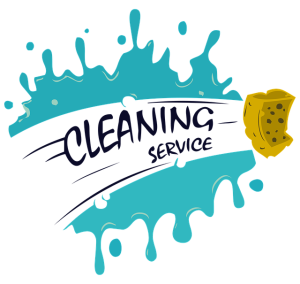Eco-friendly kitchen floor cleaning is a growing trend driven by consumers seeking conscious alternatives to traditional chemical cleaners. Using natural ingredients like vinegar, baking soda, and essential oils removes grease and grime while minimizing exposure to harsh substances and environmental impact. These solutions keep kitchens clean, promote health, and contribute to sustainability. Easy-to-follow DIY recipes, regular maintenance routines, and choosing non-toxic, biodegradable products are key steps towards eco-friendly kitchen floor cleaning. This approach benefits both family health and the planet.
Looking for an eco-conscious way to keep your kitchen floors sparkling? Discover the power of natural ingredients in this comprehensive guide to green kitchen floor cleaning. Learn about the benefits of using sustainable cleaners, explore effective DIY recipes, and master maintenance tips. From understanding the basics of non-toxic cleaning to choosing the right products and educating your family, we’ve got you covered for a clean, healthy, and planet-friendly kitchen.
Understanding Eco-Friendly Cleaning: The Basics

Eco-friendly cleaning practices have gained popularity, especially in today’s conscious consumer market. When it comes to kitchen floor cleaning, embracing natural and non-toxic solutions is both beneficial for your health and the environment. The basics of eco-friendly cleaning involve using simple, plant-based ingredients that are safe, effective, and biodegradable. These methods offer an alternative to traditional chemical cleaners, which can be harsh and leave behind residues.
By opting for eco-friendly kitchen floor cleaning, you reduce exposure to harmful substances and minimize the environmental impact of cleaning products. Common natural ingredients like vinegar, baking soda, and essential oils are versatile and powerful cleaning agents. For instance, vinegar’s acidity helps cut through grease and grime, while baking soda acts as a gentle abrasive and deodorizer. Essential oils not only add a refreshing scent but also possess antimicrobial properties. These simple, affordable solutions make it easy to keep your kitchen floors clean without sacrificing health or sustainability.
Benefits of Using Natural Ingredients for Kitchen Floors

Using natural ingredients for kitchen floor cleaning offers numerous advantages, making it an eco-friendly and healthy choice for your home. Firstly, these ingredients are non-toxic, ensuring a safer environment for you, your family, and pets. Many conventional cleaning products contain harsh chemicals that can be harmful if ingested or inhaled, but natural alternatives provide a gentle yet effective solution.
Additionally, natural kitchen floor cleaners are biodegradable, reducing their impact on the environment. They minimize water pollution and contribute to a more sustainable approach to household maintenance. With their powerful cleaning properties, derived from plants, essential oils, and other organic compounds, these ingredients can effectively remove dirt, stains, and grime without leaving behind toxic residues or harsh odours.
Common Eco-Friendly Floor Cleaning Products and Their Uses
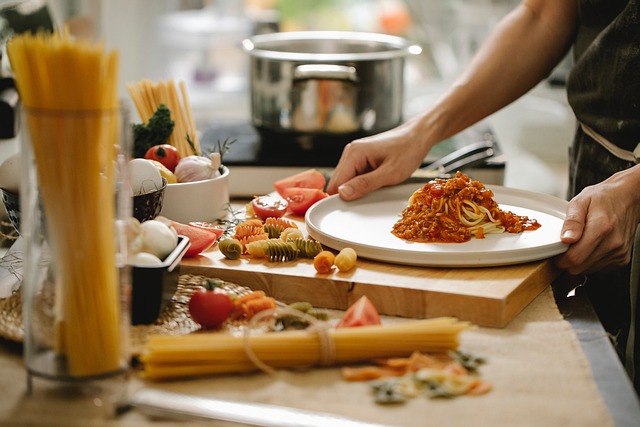
In the quest for eco-friendly kitchen floor cleaning, a variety of natural and non-toxic products offer effective solutions. These range from white vinegar, known for its exceptional antimicrobial properties and ability to cut through grease, to baking soda, a gentle yet powerful cleaner that can scrub away stains. Essential oils like lemon or tea tree oil not only add a refreshing scent but also possess antibacterial and antifungal qualities.
For more specialized needs, plant-based detergents and cleaning tablets designed for kitchen floors provide deep cleaning without leaving behind harsh chemicals. These products are versatile, suitable for various floor types, and often include multiple uses such as mopping, spotting, and even degreasing. By opting for these eco-friendly alternatives to traditional chemical cleaners, you contribute to a healthier environment while maintaining a sparkling clean kitchen floor.
Step-by-Step Guide to Natural Kitchen Floor Cleaning

Step-by-Step Guide to Natural Kitchen Floor Cleaning
Start by gathering a few simple, natural ingredients that are effective and safe for your kitchen floor. A mixture of equal parts white vinegar and water is an excellent all-purpose cleaner. You can also use baking soda as a mild abrasive for stubborn stains. For added antimicrobial properties, consider essential oils like tea tree or citrus.
In a spray bottle, combine your chosen cleaning solution. For hard floors, apply the solution directly and scrub gently with a microfiber mop or sponge. For tile or stone floors, sprinkle baking soda over the surface, let it sit for a few minutes, then spray the solution and scrub thoroughly. Rinse well with clean water and allow to dry naturally. This method is gentle on your floors and leaves them sparkling clean without harsh chemicals.
DIY Recipes for Effective Eco-Cleaning Solutions
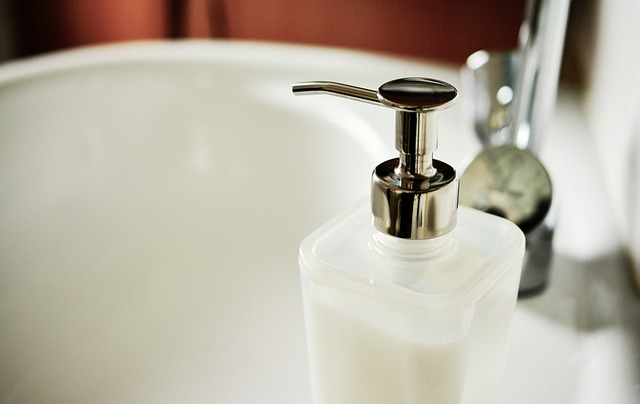
Creating eco-friendly cleaning solutions for your kitchen floor is simpler than you think. DIY recipes offer an effective and sustainable alternative to commercial products, ensuring a deep clean without harsh chemicals. One popular option is a mixture of equal parts white vinegar and water. This versatile duo can cut through grease and grime while also neutralizing odors naturally. For a more powerful cleaning agent, add a few drops of essential oils like tea tree or lemon for added antibacterial properties and a refreshing scent.
Another simple recipe involves baking soda and a small amount of liquid castile soap. Mix these ingredients to create a paste that can be applied directly to tough stains. Let it sit for a few minutes before scrubbing with a soft brush or mop head. This method is gentle on both your floors and the environment, leaving your kitchen sparkling without any harmful residues.
Best Practices for Regular Maintenance and Prevention

Regular maintenance is key to keeping your kitchen floor clean and eco-friendly. Start by establishing a consistent cleaning routine using natural, non-toxic cleaners. Sweep or vacuum daily to remove dirt and debris, preventing excessive mopping which can wear down floors over time. Opt for microfiber cloths and buckets of warm water mixed with mild, plant-based detergents. Avoid harsh chemicals that may leave residues and harm the environment.
Prevention is another vital aspect. Consider placing mats at entryways to trap dirt and moisture before it reaches your floor. Regularly clean these mats thoroughly to maintain their effectiveness. Additionally, promptly address spills to prevent staining and water damage, which can compromise the integrity of your kitchen floor and require more intense cleaning methods later on.
Addressing Stains and Tough Spots Naturally

When it comes to eco-friendly kitchen floor cleaning, tackling stains and tough spots naturally is a key aspect. Instead of relying on harsh chemicals, consider using homemade cleaning solutions powered by nature’s ingredients. White vinegar and baking soda are classic duos, effective in removing grease, grime, and even stubborn coffee stains without leaving behind toxic residues.
For more persistent stains, natural enzymes found in products like lemon juice or orange peels can break down organic matter, making them excellent alternatives to artificial cleaners. These natural methods not only preserve the health of your family and the environment but also contribute to a greener and more sustainable kitchen floor cleaning routine.
Choosing Sustainable Floor Cleaners: What to Look For
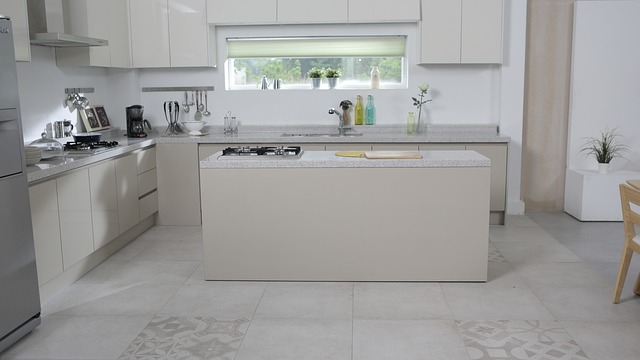
When it comes to eco-friendly kitchen floor cleaning, selecting sustainable floor cleaners is a significant step. Look for products that are labeled as non-toxic and biodegradable, ensuring they won’t harm your family or the environment. Avoid those containing harsh chemicals like ammonia, phosphates, or chlorine, which can leave behind toxic residues and contribute to air pollution. Instead, opt for cleaners made from natural ingredients such as vinegar, baking soda, essential oils, and plant-based surfactants.
Check the packaging for certifications like EcoLogo or Green Seal, which guarantee that the product meets strict environmental standards. Additionally, consider cleaners with minimal packaging or those using recyclable materials to reduce waste. By choosing sustainable floor cleaners, you contribute to a greener kitchen and a healthier living space.
Tips for Educating Your Family on Environmentally Friendly Cleaning
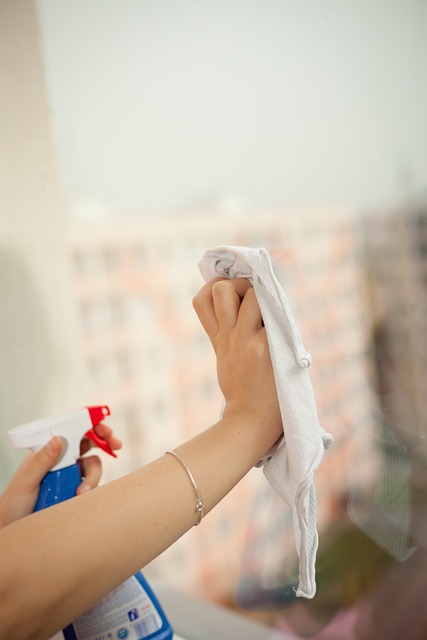
Incorporating eco-friendly practices into your family’s daily routines is an excellent way to contribute to a greener planet, and kitchen floor cleaning is no exception. Start by educating your loved ones on the benefits of environmentally conscious cleaning. Emphasize that many traditional cleaning products contain harsh chemicals that can be detrimental to both health and the environment. Opting for natural alternatives not only reduces potential health risks but also minimizes ecological impact.
Involve the whole family in this process; create a simple guide with step-by-step instructions tailored to different types of kitchen floors (e.g., wooden, tile). Share tips like using white vinegar and baking soda as all-purpose cleaners, which are safe, effective, and cost-friendly. Encourage them to avoid single-use cleaning products and invest in reusable bottles filled with homemade solutions. Regularly discussing and reinforcing these eco-friendly practices will ensure a clean kitchen while promoting a healthier and more sustainable lifestyle.
